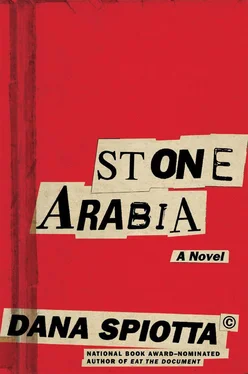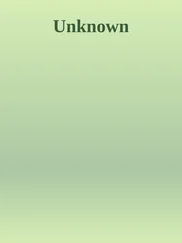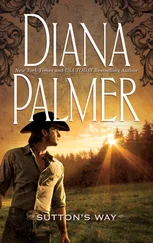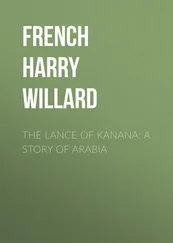“Go ahead,” Nik said. He held open his hands, palms out. He had a queasy smile. He had the liberated, reckless glee of someone who knows what’s coming. “Go ahead, you motherfucker.”
Bill slammed his fist into Nik’s face. A loud smack of skin with a cracking sound underneath. A sharp out breath, a yelp of pain. The fight was over. Bill stormed down the stairs. I shrieked at him. He left. Nik had a towel on his face, blood everywhere. And I knew, of course, that Ada and her friend had watched the whole thing. I could hear Ada crying. I held her and watched Lisa, Nik’s girlfriend at the time, clean him up. Then I had this thought. This ugliness means something, this pointless ugliness in front of my child. Were we shameless, was that it? That must not have been it, because I felt a hot, deep shame. There were tears from shame. It wasn’t that we were shameless, it was that we were careless. In that moment we had closed the distance between carefree and careless. Somehow, as we grew older, we lost our liberated, irresistible claim on being carefree. I felt it then, even if Nik didn’t. It had snuck up on us and hardened into something else.
Nik signed up for food stamps. Of course I knew, and Nik knew, that wasn’t the whole story. But still. Food stamps, don’t kid yourself, they help and they don’t.
When I was pregnant with Ada, they asked me if I wanted WIC coupons. (I don’t remember what WIC stood for. Women in Calamity? Wombs in Crisis? Whiners in Christ?) They told me my income qualified me for WIC pre- and postnatal care and WIC essential food items. I used them for a long time. I got cheese and juice, and later, after she was born and I discovered that my postpartum migraine meds made it a problem to breastfeed, I used WIC for the very expensive formula Ada required. I needed the help. But the coupons were a pain. Each month you had to pick them up in person. You could only go to the supermarkets that accepted them. You could only buy certain things with them. And everyone in line saw you use them. And you knew whatever else you bought (God forbid you bought cigarettes or beer or even a candy bar), even though you paid your own money for it, would be scrutinized by everyone in line. It didn’t have to go like that — but it did, and the message was clear to me. I used to drive all the way over to the west side so I could use the Albertson’s there. I dreaded running into people I knew. First I had to get someone to open the locked case where the formula was kept. (I never asked why baby formula had to be kept in a locked case. I didn’t want to know.) Then I felt helpless as I watched the checkout girl sigh when I showed her the coupons — using them was a complicated transaction involving signatures and product codes and manager approvals.
More than once I would drive out of my way, find the smallest line, go last, and then discreetly hand over the coupon to have the checkout girl call over the intercom loudspeaker for the manager and then wait, holding up the line as the girl held my coupons aloft.
Later, when I got health insurance through another state program, one that issued a regular insurance card that didn’t identify how it was funded, I remember how the nurse at my doctor’s office asked me, “WIC, right?” I said no, and I handed her my new insurance card, and she said, “Good for you!” with a big smile. I smiled back, because what else was I supposed to do? So the food stamps may not have been the whole story, but they certainly made up some significant chunk of the story.
“Did you find out about getting disability?”
He shook his head.
“What? Did you even ask them?”
“It takes ages and ages to get disability. I don’t think I qualify, anyway.”
“You didn’t even ask, did you?” I said. “Oh yeah, I did.” “What did they say?”
“ABAWD can GFH.” “What?”
“Able-bodied adult without dependents can go fuck himself.”
“You have to apply, you really can’t work.”
Nik took my hand and squeezed it. I got the faintest whiff of bourbon. “Don’t worry. I got it covered.”
“How, just how, are you going to cover it?” I said. My mouth set, and I shook my head.
“I got it, you’ll see.”
“I’ll tell you what you got, okay? I’m so goddamn sick of your ‘handling’ things. You don’t handle anything, ever. You live in your fantasy world and it all costs me. It all will end up my problem. Like Mama, like your rent, like fucking everything. It is all on me.”
Nik looked at me, not smiling. I knew I was going to regret it, but I glared at him, unmoved.
“I just can’t do it all. Not anymore. It is too much.”
Nik broke into a huge grin. “What, are you breaking up with me?”
I sighed.
“Because no one has ever broken up with me.” He put an arm around me. “I get it, I understand. You are right. I’m sorry.” I felt the tears, but that was no shock to him or me because I always cry over everything.
“I just worry about what will happen in the future. In the near future. We can’t act like kids forever.”
“Oh my God, you’re right! We are all growed up! Holy crap, Dee Dee.”
Okay, so he made me laugh about it, about my fear and my worry. But things couldn’t and didn’t stay the same. They got harder. It was getting harder all the time. All of this was much harder than it used to be. For me.
I measure the distance between things. Isn’t that what memory is for? Isn’t that what this is for?
This day, this limping, awful day. Where to begin? The morning, of course. Recounting the beginning is easy — we have the actual film Ada made, and I don’t have to remember anything; I have it on tape.
Ada was not going to make an invisible Maysles Brothers — type documentary. She wasn’t going to pretend it was some objective version of reality. She would interact and ask questions. It was a film about her family, after all. She wanted to film me walking around Runyon Canyon, but I put the kibosh on that. I wanted to be a static talking head. They set up the camera, Ada asked me the questions and then urged me to talk and talk. She wanted hours. She had questions, but she didn’t yet know where it would go. She was of the organic documentary theory that a pure, authentic narrative would emerge in the editing process after they waded through the footage.
(Insert here — somehow — the excerpted clip from Garage-land, the movie.)
In the meantime, the transcript as I recall it:
I sat on a stool. Instead of using my pathetically suburban house as a backdrop, I was shot in an empty room with one of Nik’s collages behind me. It was the one of him that was made by putting all nineteen covers of The Ontology of Worth together. So this mosaic of Nik loomed over me, with one piece missing — the still, at the time of filming, unreleased Volume 1. (When I watched this part of the film a few days later, it reminded me of the brainwashing sequence from The Manchurian Candidate, where the main character sits in front of a huge playing card. What was his name? The character’s name was Shaw. But I couldn’t recall the actor. Then I remembered it was Laurence Harvey, of course. Beautiful, gay Laurence Harvey. Oh, and here is how I remembered his name: Laurence Harvey died at forty-seven from suicide stomach cancer. Or did I misremember that?)
ME
Right. Is it okay if I drink coffee during this? Are we starting already? Okay.
ADA (offscreen)
Why don’t you tell me, Ma, how Nik started making the Chronicles. Why did he?
ME
I guess it really started around ’79 or ’80. It coincided with his ending his band. 1979 was the last year Nik was actually in a band. The year of the big disappointment. I think it is fair to describe it as not entirely a surprise. Nik was faking it. I knew it, he knew it. He wasn’t really interested in the punk or post-punk music scene that was exploding. He was too old, for one thing. Nik was twenty-five and everyone else was like seventeen. He was a poseur, as we used to say.
Читать дальше












